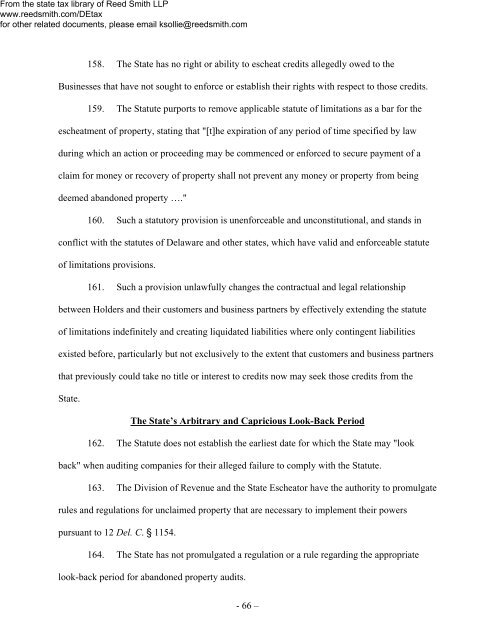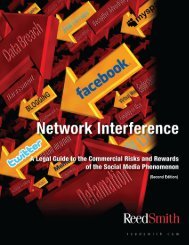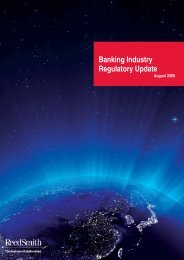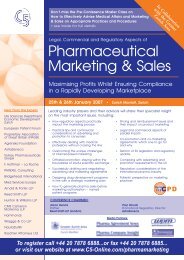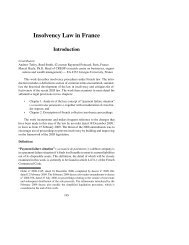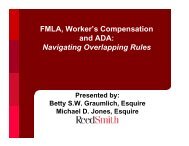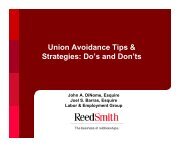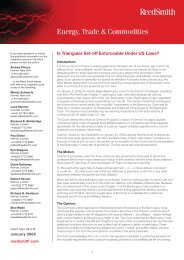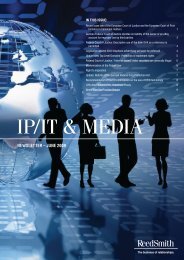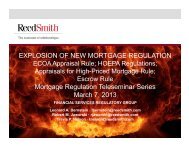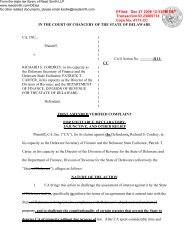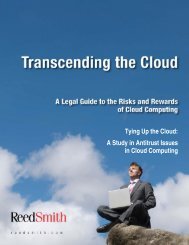CA, Inc.'s Answer and Counterclaim - Reed Smith
CA, Inc.'s Answer and Counterclaim - Reed Smith
CA, Inc.'s Answer and Counterclaim - Reed Smith
You also want an ePaper? Increase the reach of your titles
YUMPU automatically turns print PDFs into web optimized ePapers that Google loves.
From the state tax library of <strong>Reed</strong> <strong>Smith</strong> LLPwww.reedsmith.com/DEtaxfor other related documents, please email ksollie@reedsmith.com158. The State has no right or ability to escheat credits allegedly owed to theBusinesses that have not sought to enforce or establish their rights with respect to those credits.159. The Statute purports to remove applicable statute of limitations as a bar for theescheatment of property, stating that "[t]he expiration of any period of time specified by lawduring which an action or proceeding may be commenced or enforced to secure payment of aclaim for money or recovery of property shall not prevent any money or property from beingdeemed ab<strong>and</strong>oned property …."160. Such a statutory provision is unenforceable <strong>and</strong> unconstitutional, <strong>and</strong> st<strong>and</strong>s inconflict with the statutes of Delaware <strong>and</strong> other states, which have valid <strong>and</strong> enforceable statuteof limitations provisions.161. Such a provision unlawfully changes the contractual <strong>and</strong> legal relationshipbetween Holders <strong>and</strong> their customers <strong>and</strong> business partners by effectively extending the statuteof limitations indefinitely <strong>and</strong> creating liquidated liabilities where only contingent liabilitiesexisted before, particularly but not exclusively to the extent that customers <strong>and</strong> business partnersthat previously could take no title or interest to credits now may seek those credits from theState.The State’s Arbitrary <strong>and</strong> Capricious Look-Back Period162. The Statute does not establish the earliest date for which the State may "lookback" when auditing companies for their alleged failure to comply with the Statute.163. The Division of Revenue <strong>and</strong> the State Escheator have the authority to promulgaterules <strong>and</strong> regulations for unclaimed property that are necessary to implement their powerspursuant to 12 Del. C. § 1154.164. The State has not promulgated a regulation or a rule regarding the appropriatelook-back period for ab<strong>and</strong>oned property audits.- 66 –


